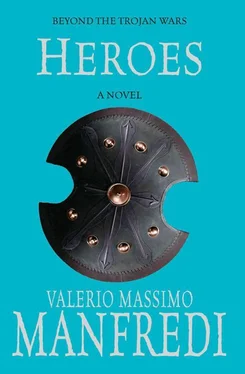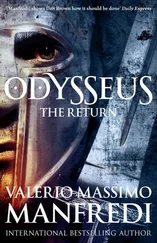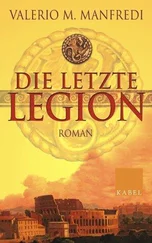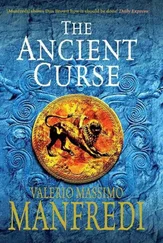Valerio Manfredi - Heroes
Здесь есть возможность читать онлайн «Valerio Manfredi - Heroes» весь текст электронной книги совершенно бесплатно (целиком полную версию без сокращений). В некоторых случаях можно слушать аудио, скачать через торрент в формате fb2 и присутствует краткое содержание. Жанр: Исторические приключения, на английском языке. Описание произведения, (предисловие) а так же отзывы посетителей доступны на портале библиотеки ЛибКат.
- Название:Heroes
- Автор:
- Жанр:
- Год:неизвестен
- ISBN:нет данных
- Рейтинг книги:3 / 5. Голосов: 1
-
Избранное:Добавить в избранное
- Отзывы:
-
Ваша оценка:
- 60
- 1
- 2
- 3
- 4
- 5
Heroes: краткое содержание, описание и аннотация
Предлагаем к чтению аннотацию, описание, краткое содержание или предисловие (зависит от того, что написал сам автор книги «Heroes»). Если вы не нашли необходимую информацию о книге — напишите в комментариях, мы постараемся отыскать её.
Heroes — читать онлайн бесплатно полную книгу (весь текст) целиком
Ниже представлен текст книги, разбитый по страницам. Система сохранения места последней прочитанной страницы, позволяет с удобством читать онлайн бесплатно книгу «Heroes», без необходимости каждый раз заново искать на чём Вы остановились. Поставьте закладку, и сможете в любой момент перейти на страницу, на которой закончили чтение.
Интервал:
Закладка:
‘I will do as you advise,’ said Anchialus. ‘If you like, I will fight alongside your warriors, as I once did.’
‘That will not be necessary,’ said Menelaus. ‘Argos will fall without a fight. The army that was sent out with Aegisthus’s forces has been destroyed. The survivors have come over to our side. The city cannot resist.’
‘Aigialeia. . what will become of her?’
‘The war council will decide. But the queen of Argos is a proud woman. Perhaps she will take things into her own hands. But go now and take your rest. We all need to rest.’ The king took his leave, kissing Anchialus on both cheeks.
Anchialus started to leave, but before crossing the threshold he turned back: ‘There’s something I have not told you.’
‘What is it?’
‘That people. . speaks a language like our own. Different. And yet very similar. I have always wondered why.’
He went out into the night and the king remained alone in his tent with those words. ‘A language similar to ours,’ he kept repeating to himself. He lifted his hands to his face and closed his eyes. ‘Oh gods,’ he said, ‘gods of the heavens. Destiny is fulfilled. The sons of Hercules are about to return. If you are just, allow me, please, to live until the moment in which I will know if the war in Asia was fought for the salvation of our people or if so much blood and so many tears were shed for nothing.’
A month later, Argos surrendered. Menelaus and Pisistratus entered the city, welcomed by the rejoicing inhabitants. Queen Aigialeia killed herself.
Anchialus was given his ship and he left one day at the end of winter, sailing north towards the mouth of the Eridanus. He remembered Diomedes’s promise: when they had come to a suitable place, he would found a city on the coast and would place a signal on the beach so that Anchialus could find them. The king never broke his word.
Meanwhile, in the land of Hesperia, Diomedes had crossed the snow-covered Blue Mountains and had descended a great river until he reached the confines of a plain which extended all the way to the western sea. It was inhabited by the Lat who had settled there not long ago, having crossed the Mountains of Ice, some said, or perhaps the eastern sea. Eurimachus the Trojan told them the Teresh lived north of that land, and that Aeneas had occupied a territory on the coast that he had won from the Lat in battle.
If nothing had changed during his absence, the Dardan prince could be found at no more than two days’ journey along the shores of the great river. Diomedes decided to set up camp there. The climate was mild and the pastures were lush. One night he summoned Eurimachus and said: ‘Tomorrow you will leave.’ Then he called Lamus, son of Onchestus, and ordered him to accompany the Trojan as his herald. ‘When you see Aeneas, you shall say: “Diomedes, son of Tydeus, who has already defeated you on the fields of Ilium, is here. He thinks that there is not room for both of you in this land, and that the quarrel that set our peoples one against the other for long years must be settled once and for all. Why else would the gods have made us wander at length over land and sea only to find each other here in this far land? He awaits you in a valley along the great river, and he challenges you to this duel. He who wins will certainly have the favour of the gods and the dominion over this land.” ’
‘I will do so,’ said Lamus.
They left the next day, and the Chnan departed with them. And thus the wait began. Myrsilus raided a village in the mountains and carried off some fine horses. He assembled the king’s war chariot, greased the hubs and fixed the shaft on to the wagon. He shined every decoration until they gleamed like they once had. He chose the two proudest stallions and had them run every day from dawn to dusk along the shores of the river. He accustomed them to the harness and reins and trained them well in every manoeuvre. They were very different from Asian horses, and from Argive horses as well. They were tall and slender, not as fast, perhaps, but more powerful, with a fiery temper. Diomedes spent most of his time alone and took little interest in the training; the great effort that Myrsilus was making to provide him with a chariot worthy of a king, worthy of a hero, a chariot that would raise his fame to the skies, seemed not to matter at all to the king.
This was not true; Diomedes kept to himself in order to gather his strength and concentrate all the power of his spirit. He was preparing for the encounter by distilling every last drop of his life energy. Myrsilus feared that the king would take his own life if Aeneas were not to accept his challenge.
One evening towards dusk, Myrsilus saw Lamus and the Chnan riding towards camp on an ass. He raced to meet them.
‘Did you see him? Has he accepted?’
The Chnan halted the ass and slipped to the ground. Lamus said: ‘Yes, I saw him. He accepts. Take me to the king.’
Diomedes received him in his tent. He was pale, but his eyes shone with a feverish light. He did not move. He asked nothing. He waited for Lamus to speak.
‘Aeneas accepts the challenge. He will come on the first day of the new moon. Alone, except for his charioteer. You too must use your chariot alone. You will fight as you did in Ilium. Three javelins from the chariot and then, if you survive, on the ground with a spear, a sword and an axe. No respite. A duel to the death. These are the conditions I accepted in your name.’
Diomedes’s face lit up as though life once again flowed through his veins. ‘Well done,’ he said. ‘I thank you. If I win, if I finally found my city. .’
The Chnan interrupted. ‘That’s not all. The Lat fear him. At least a part of them, while others would be willing to accept him. When they learned of this challenge, they gave me a message for you. They ask you to join forces with all your warriors, to drive the Trojans into the sea. The Teresh are divided as well. Some of them are on the Trojans’ side and are ready to form an alliance in the name of their common Asian origin, but others want Aeneas, and all his people, dead.’
The king looked at him in surprise: ‘How did you discover all of these things?’
‘I can understand the Teresh well enough, and they understand the Lat . That’s all. What is your decision?’
‘No,’ said the king. ‘I will not drag my men into a war against the Trojans. They have already fought against them once, and it was a cursed war. It brought nothing but grief and endless pain.’
The Chnan shook his head: ‘I’ve yet to hear of a war that wasn’t cursed, that did not bring grief and endless pain.’
‘This is the war they have experienced; they have seen that the victors have suffered as much as, if not more than, the vanquished. With what spirit could they face another war against the same people? No. Tell the Lat that I will not make war at their side. Tell them, if you want, that we have already fought a long war that brought us every kind of misfortune. I will combat Aeneas alone. If I win, you will return to them and negotiate new conditions. From a stronger position. Perhaps this beautiful plain will soon be ours. Perhaps the day in which I will build my city is nearing.’
The Chnan smiled: ‘This land has much changed you, since I have known you. It is harsh and primitive and forgives nothing. It has made you lose your world, a little at a time. You’ve lost pieces on the road, in the swamps, on the mountains, in the valleys and the forests, as your comrades fell, when your immortal horses were devoured by the wolves. Perhaps it would have soon stripped you of everything. No longer a king, or a hero. Only a man. Like me.’
Читать дальшеИнтервал:
Закладка:
Похожие книги на «Heroes»
Представляем Вашему вниманию похожие книги на «Heroes» списком для выбора. Мы отобрали схожую по названию и смыслу литературу в надежде предоставить читателям больше вариантов отыскать новые, интересные, ещё непрочитанные произведения.
Обсуждение, отзывы о книге «Heroes» и просто собственные мнения читателей. Оставьте ваши комментарии, напишите, что Вы думаете о произведении, его смысле или главных героях. Укажите что конкретно понравилось, а что нет, и почему Вы так считаете.












